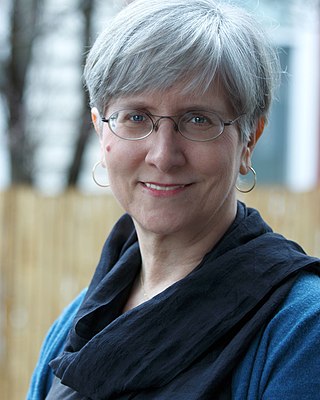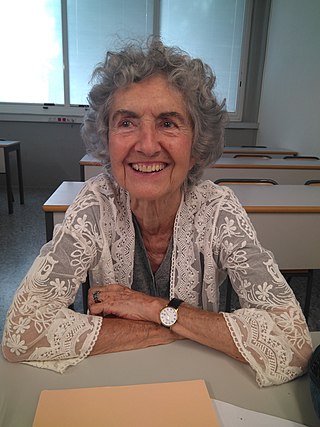Related Research Articles

Feminist economics is the critical study of economics and economies, with a focus on gender-aware and inclusive economic inquiry and policy analysis. Feminist economic researchers include academics, activists, policy theorists, and practitioners. Much feminist economic research focuses on topics that have been neglected in the field, such as care work, intimate partner violence, or on economic theories which could be improved through better incorporation of gendered effects and interactions, such as between paid and unpaid sectors of economies. Other feminist scholars have engaged in new forms of data collection and measurement such as the Gender Empowerment Measure (GEM), and more gender-aware theories such as the capabilities approach. Feminist economics is oriented towards the goal of "enhancing the well-being of children, women, and men in local, national, and transnational communities."
Feminist theory is the extension of feminism into theoretical, fictional, or philosophical discourse. It aims to understand the nature of gender inequality. It examines women's and men's social roles, experiences, interests, chores, and feminist politics in a variety of fields, such as anthropology and sociology, communication, media studies, psychoanalysis, political theory, home economics, literature, education, and philosophy.
Philosophy and economics studies topics such as public economics, behavioural economics, rationality, justice, history of economic thought, rational choice, the appraisal of economic outcomes, institutions and processes, the status of highly idealized economic models, the ontology of economic phenomena and the possibilities of acquiring knowledge of them.

Jayati Ghosh is an Indian development economist. She taught economics at Jawaharlal Nehru University, New Delhi for nearly 35 years, and since January 2021 she has been Professor of Economics at the University of Massachusetts Amherst, USA. Her core areas of study include international economics and globalisation, employment patterns in developing countries, macroeconomic policy, and gender and development.
Marianne A. Ferber was an American feminist economist and the author of many books and articles on the subject of women's work, the family, and the construction of gender. She held a Ph.D. from the University of Chicago.

Julie A. Nelson is an emeritus professor of economics at the University of Massachusetts Boston, most known for her application of feminist theory to questions of the definition of the discipline of economics, and its models and methodology. Nelson received her Ph.D. degree in economics from the University of Wisconsin–Madison. Her work focuses on gender and economics, philosophy and methodology of economics, ecological economics, and quantitative methods. Nelson is among the founders and the most highly cited scholars in the field of feminist economics.

Feminist Economics is a peer-reviewed academic journal published by Routledge and the International Association for Feminist Economics (IAFFE) in the field of feminist economics.

Lourdes Benería is a Spanish–American economist. She was Professor Emerita at Cornell University's Department of City and Regional Planning. The author and editor of many books and articles, her work has concentrated on topics having to do with labor economics, women's work, the informal economy, Gender and development, Latin American Development and globalization. Before Cornell, she taught at Rutgers University and has given courses in other international centers. She worked at the ILO for two years and has collaborated with other UN organizations, such as UNIFEM and UNDP, and with several NGOs. She obtained her PhD at Columbia University in 1975.
Feminist ethics is an approach to ethics that builds on the belief that traditionally ethical theorizing has undervalued and/or underappreciated women's moral experience, which is largely male-dominated, and it therefore chooses to reimagine ethics through a holistic feminist approach to transform it.

Michèle Pujol, was a French feminist, economist, scholar, and human rights activist. She was an assistant professor at the University of Victoria's Department of Women's Studies and held a chair at the University of Manitoba.
Susan 'Sue' Felicity Himmelweit, is a British economist, emeritus professor of economics for the Open University in the UK, and was the 2009 president of the International Association for Feminist Economics (IAFFE).

The International Association for Feminist Economics (IAFFE) is a non-profit international association dedicated to raising awareness and inquiry of feminist economics. It has some eight hundred members in over 90 countries. The association publishes a quarterly journal entitled Feminist Economics.

Stephanie Seguino is a feminist professor of economics at the University of Vermont in Burlington, Vermont, United States. She was the president of the International Association for Feminist Economics from 2010 to 2011 and has also carried out research for both the United Nations and the World Bank.
Rhonda Dawn Sharp, is an adjunct professor of economics at the University of South Australia and project team leader and chief researcher of the university's Hawke Research Institute and Research Centre for Gender Studies.
Martha Lorraine MacDonald is the professor of economics in the department of economics, St Mary's University, Halifax, Nova Scotia, Canada, and was the president of the International Association for Feminist Economics (IAFFE) from 2007 to 2008.

Yana van der Meulen Rodgers is a professor in the Department of Labor Studies and Employment Relations in the School of Management and Labor Relations at Rutgers University,. She also serves as Faculty Director of the Center for Women and Work at Rutgers.
Paula S. England, is an American sociologist and Dean of Social Science at New York University Abu Dhabi. Her research has focused on gender inequality in the labor market, the family, and sexuality. She has also studied class differences in contraception and nonmarital births.
Joyce Penelope Jacobsen is a former President of Hobart and William Smith Colleges. Dr. Jacobsen was elected as the 29th President of Hobart College and the 18th President of William Smith College. Jacobsen is a scholar of economics, an award-winning teacher and an experienced administrator. She began her presidency on July 1, 2019. She is the first woman to serve as president of Hobart and William Smith Colleges.

Drucilla K. Barker was an American feminist economist and scholar of labor. At the time of her death, Barker was Professor of Anthropology in the Department of Anthropology and the Women's and Gender Studies Program at the University of South Carolina. Barker described herself as a "A Marxist feminist economist whose research interests are globalization, feminist political economy, and economic anthropology."
References
- ↑ E. Kuiper, 1960 - at the Uva Album Academicum website.
- ↑ "Kuiper, Edith, 1960-". Virtual International Authority File (VIAF). Retrieved 7 June 2014.
- 1 2 3 "State University of New York at New Paltz: Women's Studies". State University of New York at New Paltz. Archived from the original on 14 July 2014. Retrieved 7 June 2014.
- ↑ "Past presidents". International Association for Feminist Economics (IAFFE). Archived from the original on 14 May 2019. Retrieved 7 June 2014.
- ↑ Nelson, Julie A.; Ferber, Marianne (2003), "Introduction - 'Beyond economic man', ten years later", in Nelson, Julie A.; Ferber, Marianne (eds.), Feminist economics today: beyond economic man, Chicago: University of Chicago Press, pp. 8–9, ISBN 9780226242071
- ↑ Kuiper, Edith (2001). "The most valuable of all capital": a gender reading of economic texts (Ph.D thesis). Amsterdam: Thela Thesis. ISBN 9789051708141. Title page.